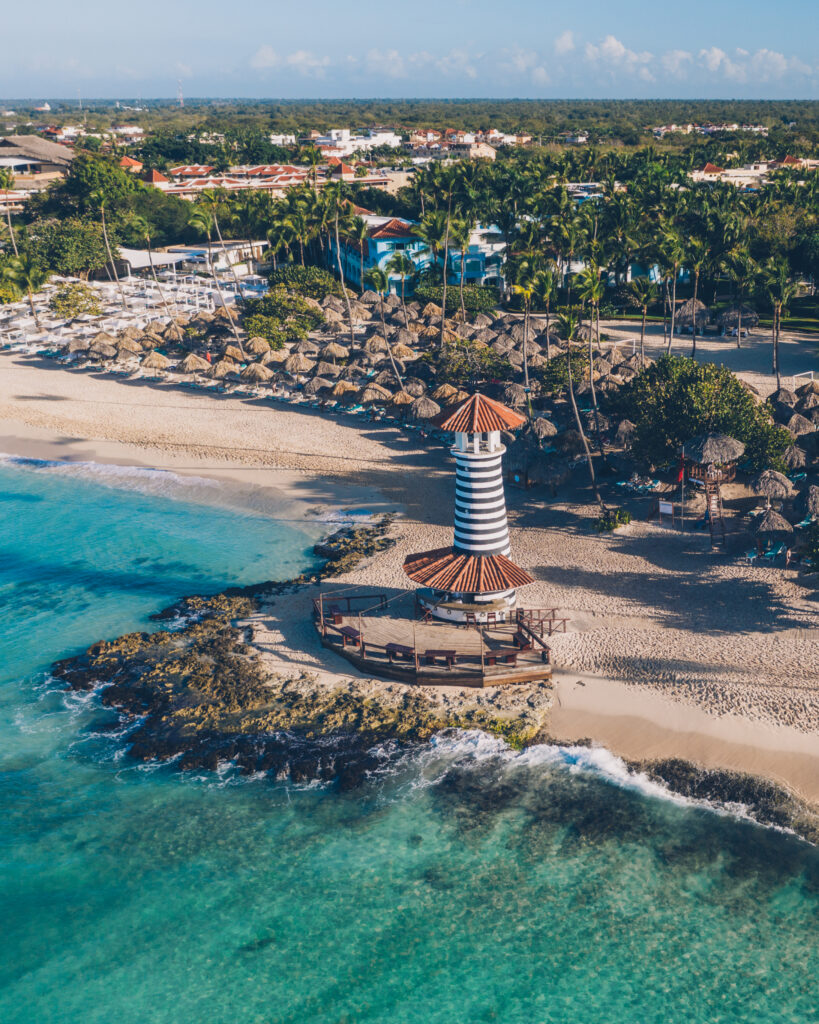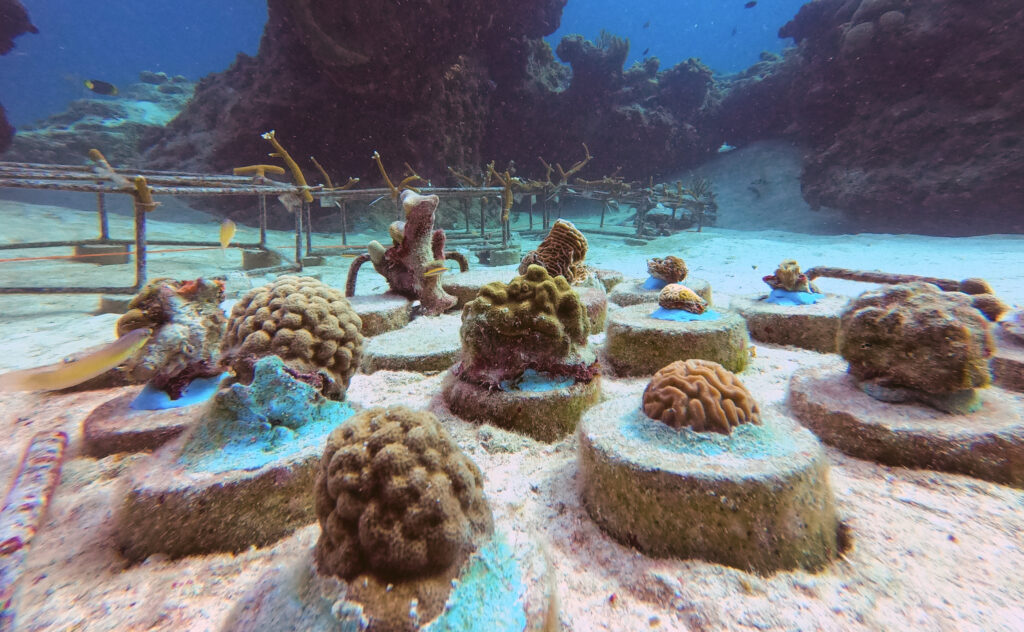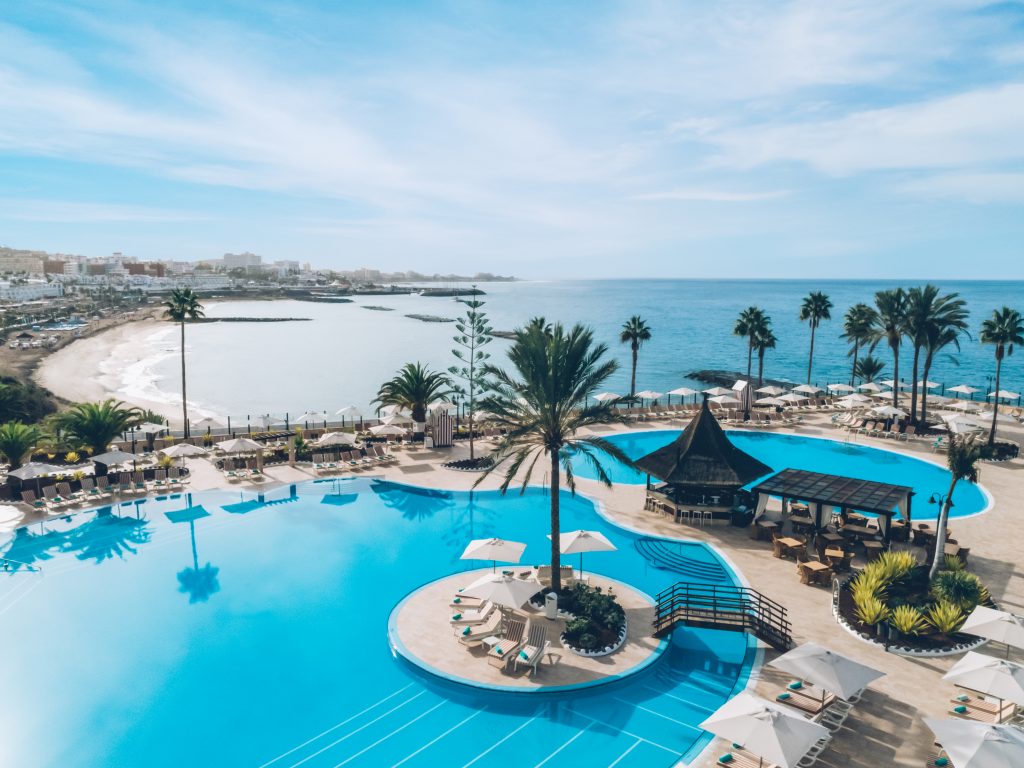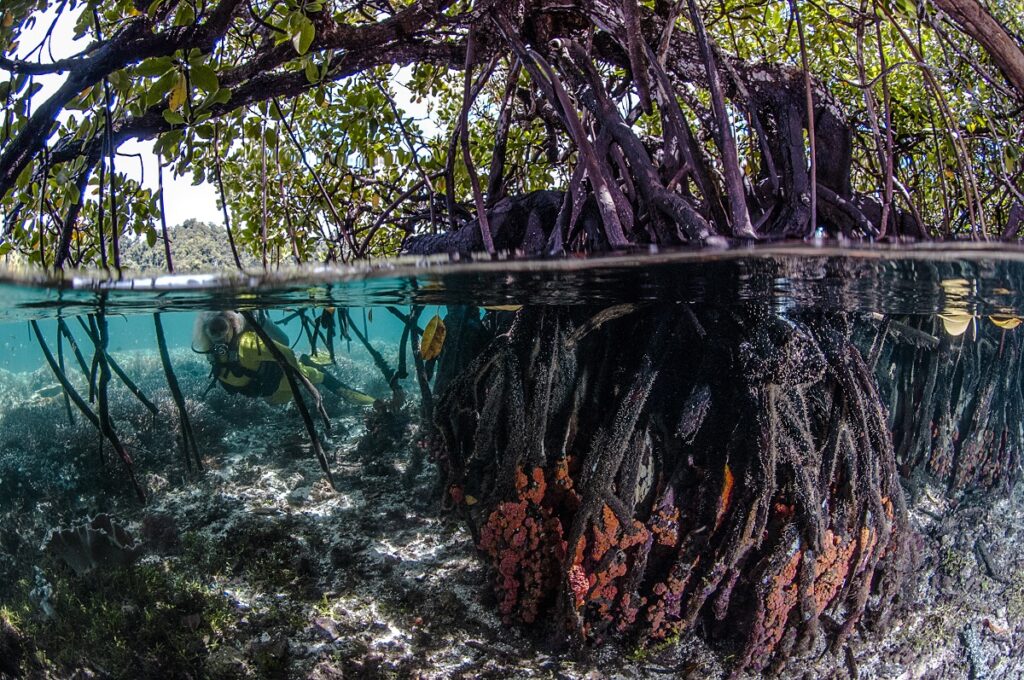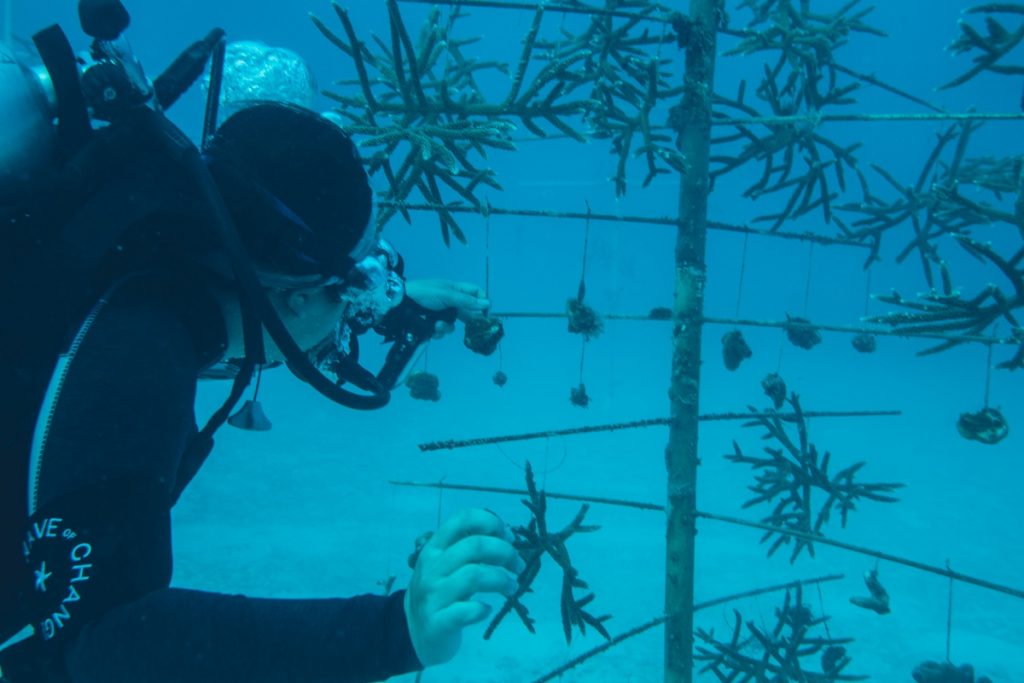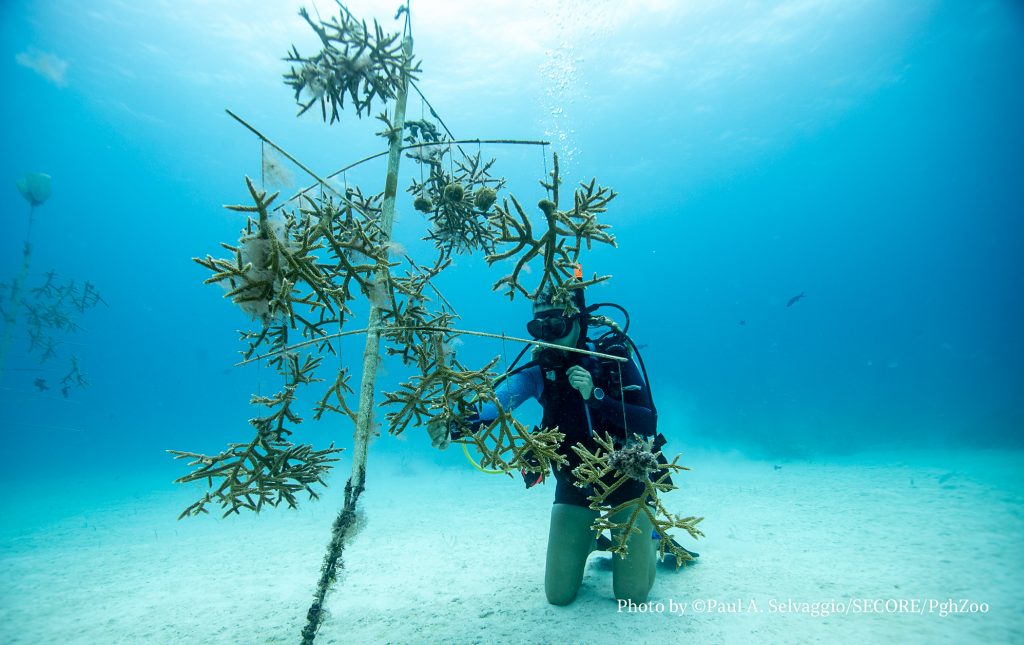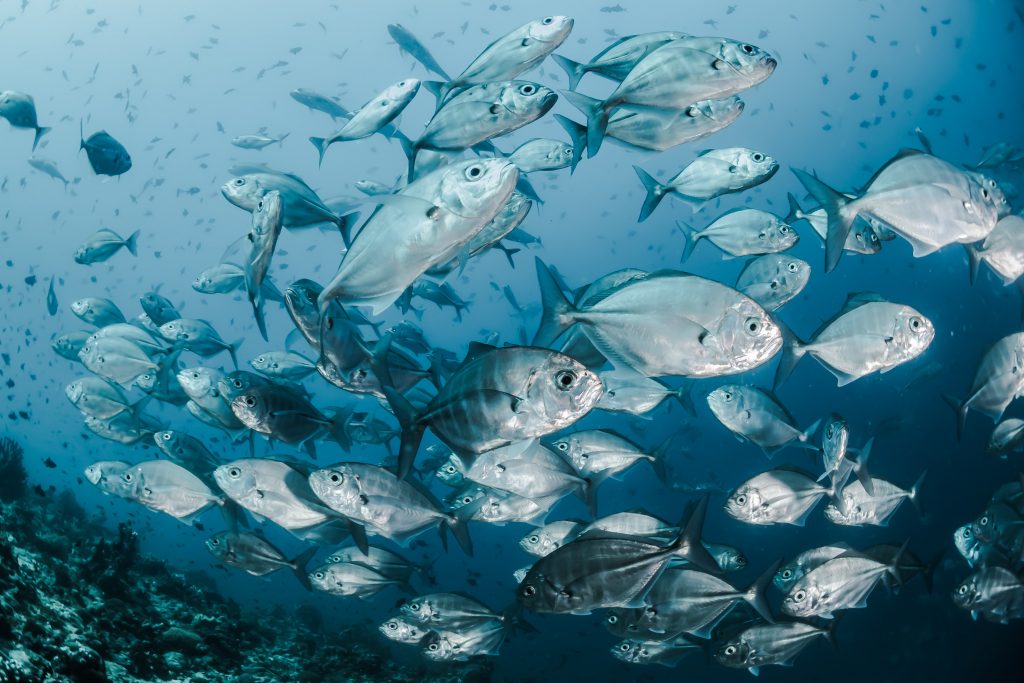Nature-based Solutions

The ocean and coastal ecosystems provide vital services, contributing over 1.5 trillion US$ annually to the global economy, according to the OECD. They play a fundamental role in mitigating climate change by absorbing 25% of all carbon emissions and regulating heat. Coastal and marine ecosystems efficiently capture and store carbon, with ocean mitigation actions potentially reducing greenhouse gas emissions by more than 11 billion tons per year by 2050. These ecosystems support the livelihoods of billions of people, with over 3 billion relying on food from the sea as their primary protein source. Additionally, ecosystems like corals, mangroves, dunes, and seagrasses provide essential protection from extreme weather patterns.
Despite their immense economic and ecological value, these ecosystems are often undervalued and face severe threats from climate change and human activities.This change is affecting ecosystem services, reducing the benefits they provide. Human-induced global climate change and related threats such as elevated water temperature, ocean acidification, relative sea-level rise, and increased frequency and intensity of weather events are some of the greatest threats to coastal and marine ecosystems.
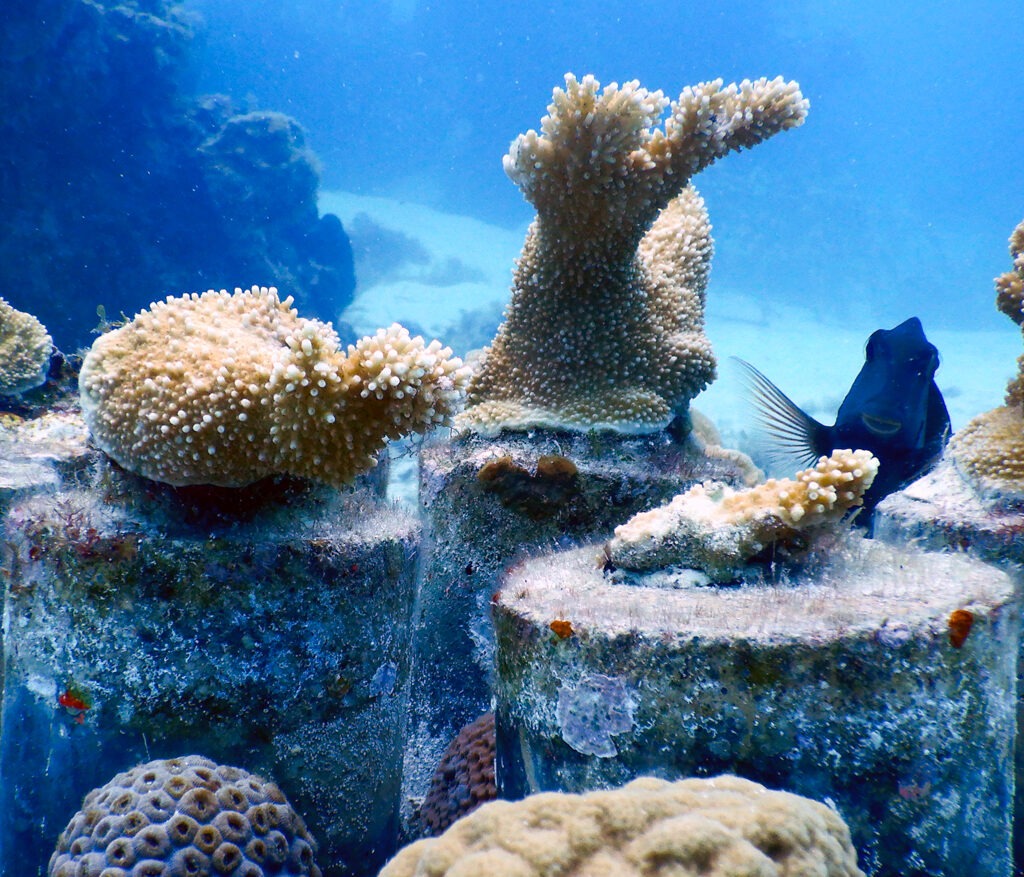


The Nature-based solutions we are driving
From Wave of Change, we believe it is time for transformative action to reach tipping points that lead to coastal ecosystem health and function. That’s why we are driving research and action to design and implement nature-based solutions to protect these ecosystems and ensure they can continue providing valuable services.
In particular, we are focusing on three key areas:
01
Restoring ecosystem services for risk reduction and mitigation
02
Contributing to regenerative destinations.
03
Enhancing green spaces for wellbeing
We are working with a team of in-house scientists and collaborating with academia and practitioners, to explore innovative, science-based solutions. Over the last few years, we have led continuous efforts to recover ecosystem services and integrate nature-based solutions into the private sector’s investments and operations.
This work has included the evaluation of risk of properties and their surroundings through conducting baseline analysis, as well as research to determine resistant species and improve ecosystem adaptation to climate change. We have also carried out coral reef, mangroves and coastal dunes restoration work intended to enhance coastal protection and risk reduction in partnership with civil society, academia and governments. We are currently estimating and tracking the financial impact of risk mitigation actions and establishing protocols for risk reduction actions in business operations.
Our goal is to enhance the attractiveness of the tourism product in front of and surrounding the property, contributing to destination environmental competitiveness. We strive to address water quality and beach erosion through the restoration of natural habitats, which will improve the beach visitor experience, and engage travelers and employees so that they understand the value of ecosystems and beach health. As part of this work we are also reintroducing plants for the protection of coastal dune areas to prevent beach erosion.
We are working with a team of in-house scientists and collaborating with academia and practitioners, to explore innovative, science-based solutions. Over the last few years, we have led continuous efforts to recover ecosystem services and integrate nature-based solutions into the private sector’s investments and operations.
This work has included the evaluation of risk of properties and their surroundings through conducting baseline analysis, as well as research to determine resistant species and improve ecosystem adaptation to climate change. We have also carried out coral reef, mangroves and coastal dunes restoration work intended to enhance coastal protection and risk reduction in partnership with civil society, academia and governments. We are currently estimating and tracking the financial impact of risk mitigation actions and establishing protocols for risk reduction actions in business operations.
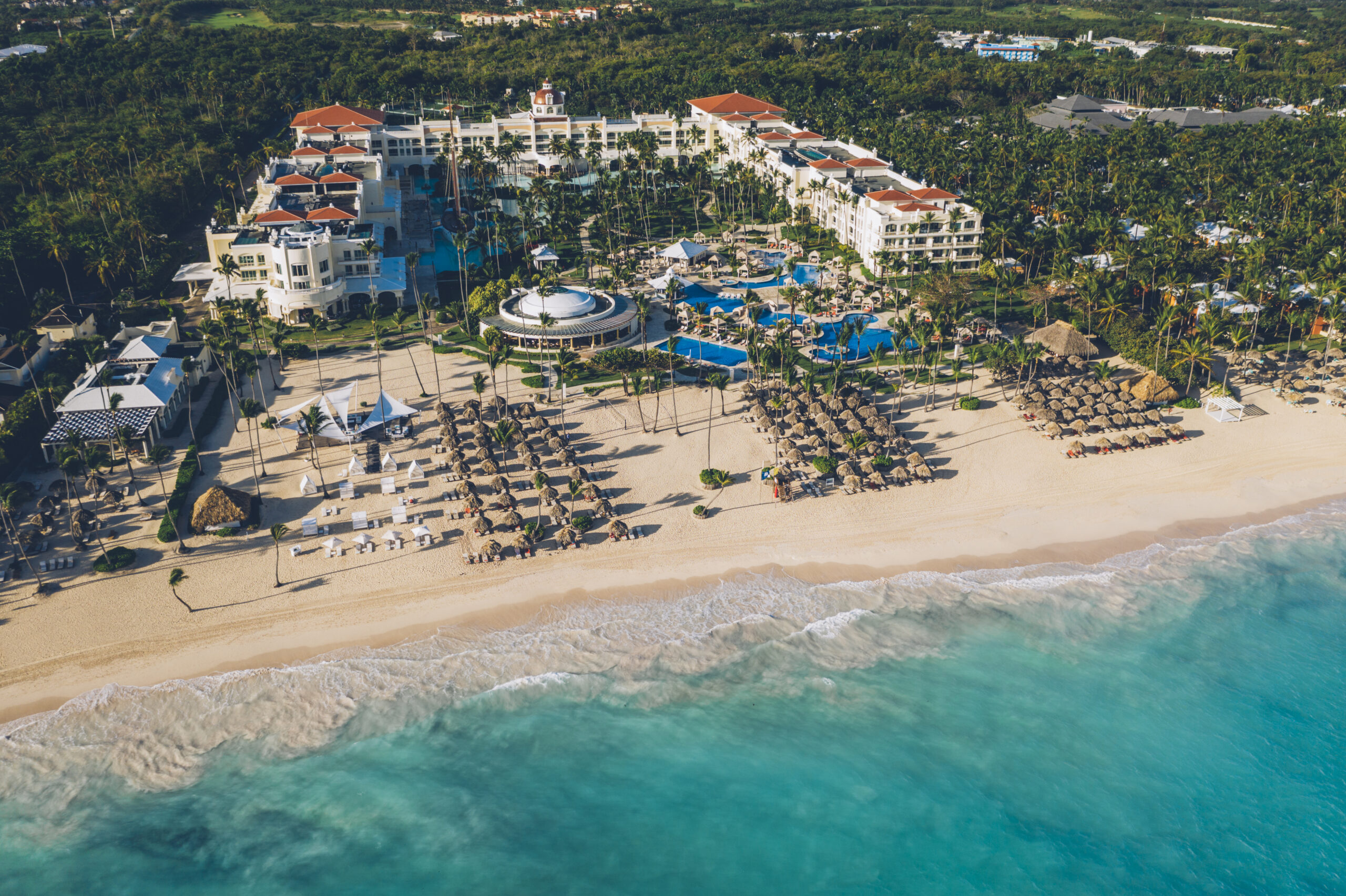


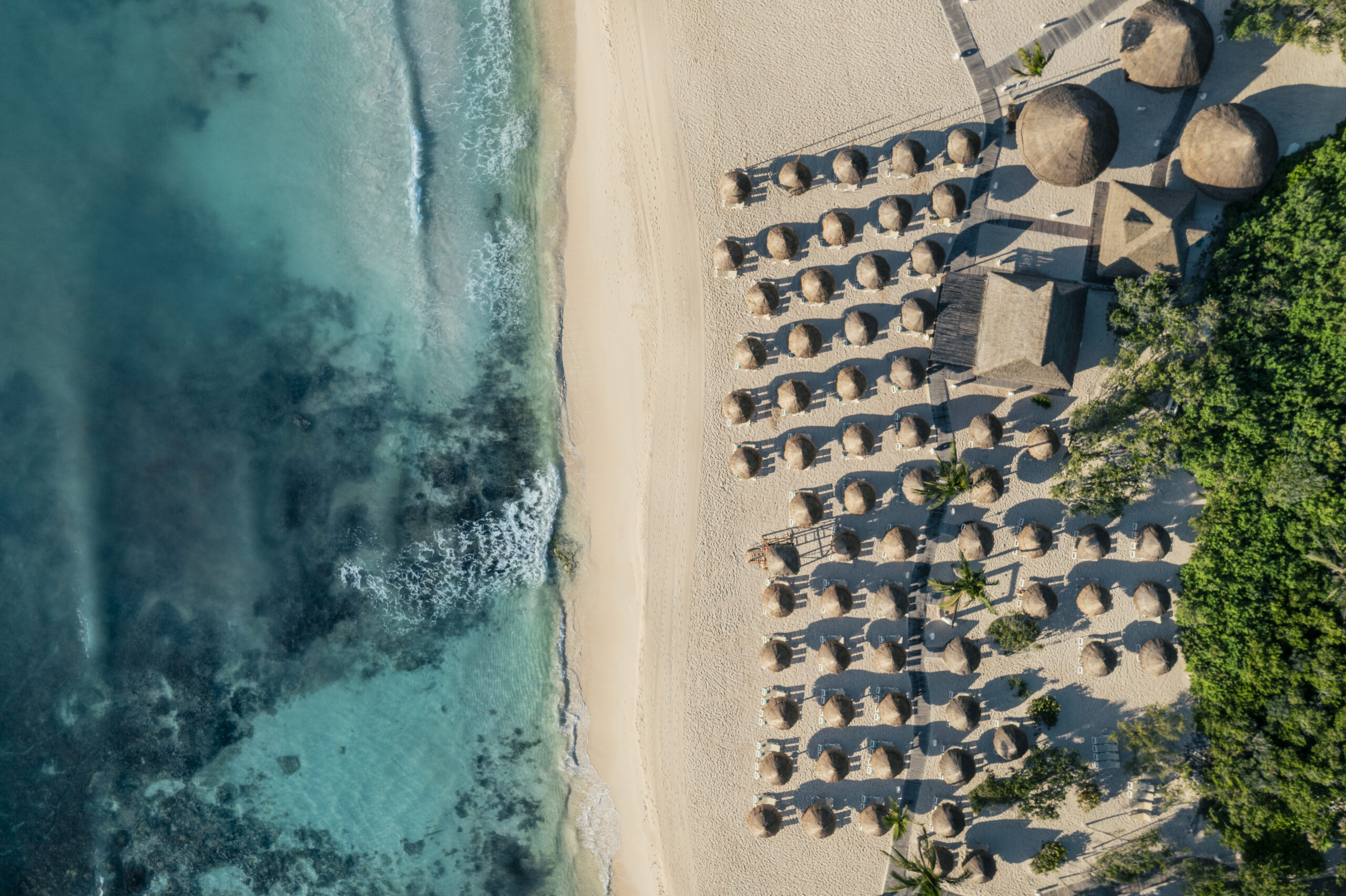
It is essential to implement nature-based solutions to protect marine and coastal ecosystems and ensure they can continue providing valuable services.
We present our roadmap for the restorative and regenerative procurement of resources, the use and end use of water, energy and the products of the built environment: our hotels.
Discover our resources
Iberostar tiene un fuerte compromiso con la transparencia. Aquí presentamos nuestro informe del año 2021, que expone cómo avanzamos en nuestros objetivos del año y ofrece una visión del funcionamiento interno de nuestro programa de sostenibilidad. Descarga el documento para saber más.
En línea con nuestro compromiso de transparencia, la memoria anual de Iberostar destaca nuestros avances en 2020 en materia de sostenibilidad, así como de diversidad e inclusión. En el documento conocerás cómo Iberostar está liderando el turismo responsable. ¡Descárgalo para saber más!
Como parte de nuestro compromiso con la transparencia, presentamos nuestro resumen del Año 2020 de Wave of Change. Este documento aglutina nuestros logros en relación con los objetivos que nos propusimos para 2020. Descarga el documento para saber más.
¿Cómo debería ser la restauración de un arrecife resistente para el turismo? Para Wave of Change, creemos que la restauración de los arrecifes debería proteger nuestras costas, mejorar la biomasa de peces para la seguridad alimentaria y mantener altos niveles de biodiversidad. Aprenda más sobre nuestro plan de restauración del arrecife aquí: Restauración del arrecife
La naturaleza tiene la solución más poderosa para el cambio climático. Los ecosistemas costeros sanos, incluidas las zonas de manglares, pueden almacenar hasta 10 veces más carbono que los bosques terrestres. Aprenda más sobre nuestro plan para compensar nuestra huella de carbono con soluciones basadas en la naturaleza aquí: Programa de compensación de carbono
El compromiso de Iberostar con el turismo responsable y la protección de los océanos es la columna vertebral de nuestra Ola de cambio movimiento. La salud de las pesquerías mundiales es fundamental para la salud de los océanos del mundo. Por lo tanto, Iberostar está estableciendo un estándar hacia los mariscos de origen responsable, mientras…
Aquí presentamos nuestra propuesta de restauración para el movimiento Wave of Change de Iberostar. Determinamos que el turismo no es de hecho una categoría separada de restauración para Iberostar. Aprenda más sobre nuestro plan de restauración descargando el recurso!
Iberostar cuenta con un equipo científico a tiempo completo para trabajar en el objetivo de Wave of Change de descubrir, proteger y restaurar los pastos marinos, manglares y arrecifes de coral en los lugares donde operamos. Conozca nuestro plan de investigación para el 2020!
Nuestra Directora de Sostenibilidad y Vicepresidenta, Gloria Fluxa, habla de la importancia de que las empresas lideren la carga de proteger los recursos naturales en el Informe de Impacto de 2019 titulado «El caso empresarial de la protección y conservación marina».
Iberostar se ha comprometido a obtener el 100% de sus mariscos de fuentes responsables para el 2025. Esta infografía describe cómo vamos a llegar allí, pasando por cada año hasta el 2025 y cuáles son nuestros objetivos en cada punto. Descargue este recurso para saber cómo vamos a llegar allí!

